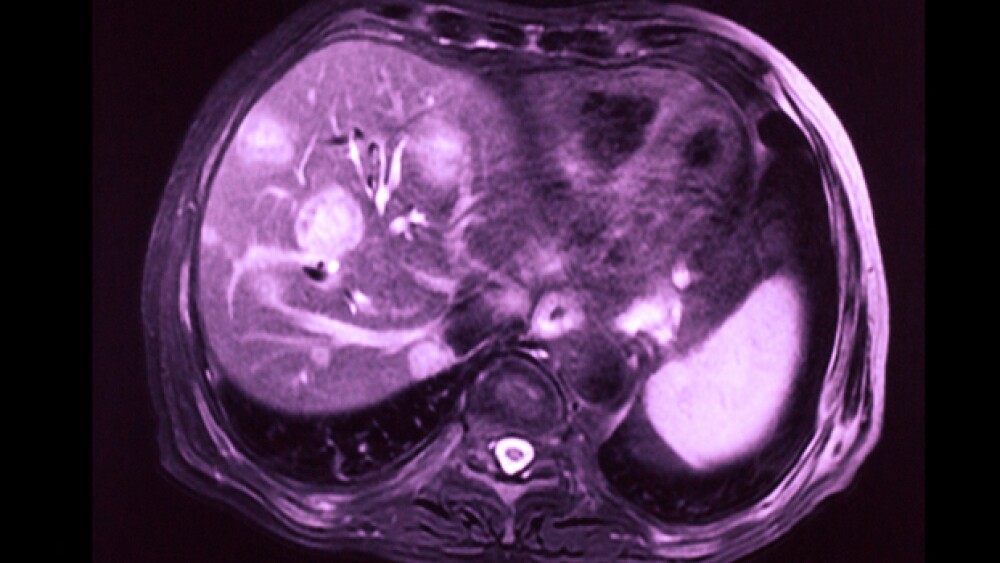Tecentriq is the company’s PD-L1 checkpoint inhibitor. Avastin is an antibody that binds to VEGF and interferes with tumor blood supply.
Genentech, a Roche company, presented positive results from the Phase III IMbrave150 clinical trial of Tecentriq (atezolizumab) in combination with Avastin (bevacizumab) in unresectable hepatocellular carcinoma (HCC) in people have haven’t received previous systemic therapy.
Tecentriq is the company’s PD-L1 checkpoint inhibitor. Avastin is an antibody that binds to VEGF and interferes with tumor blood supply.
In the trial, the drug combination showed statistically significant and clinically meaningful improvements in overall survival (OS) and progression-free survival (PFS) compared to the cohort receiving the tyrosine kinase inhibitor sorafenib. Sorafenib is marketed by Bayer as Nexavar. The Tecentriq-Avastin combination decreased the risk of death by 42% and the risk of disease getting worse or death (PFS) by 41%.
“For the first time in a decade, we are seeing a treatment that has improved overall survival for people with unresectable hepatocellular carcinoma compared with the current standard of care,” said Levi Garraway, chief medical officer and head of Global Product Development for Roche. “Tecentriq in combination with Avastin could transform the treatment of this aggressive disease, and we are working closely with global health authorities in the hope of bringing this treatment option to patients as soon as possible.”
Hepatocellular carcinoma (HCC) makes up about 75% of all liver cancers in the U.S. About 42,000 people in the U.S. are diagnosed with liver cancer this year and usually is identified in people with cirrhosis due to chronic hepatitis B and C, and alcohol consumption.
The IMbrave150 trial evaluated 501 people with unresectable HCC who had not received prior systemic therapy. The patients were randomized 2:1 to receive the combination or sorafenib. The co-primary endpoints were OS and PFS. Additional endpoints included overall response rate (ORR), time to progression (TPP) and duration of response (DoR), in addition to patient-reported outcomes like quality of life.
Reuters notes that Roche is playing catch-up to better-selling checkpoint inhibitors such as Merck’s Keytruda and Bristol-Myers Squibb’s Opdivo. However, the company is steadily expanding indications for Tecentriq. In addition, China is the company’s second-largest market after the U.S., and liver cancer is common in the country.
The company presented data from the trial in the Presidential session of the European Society for Medical Oncology (ESMO) Asia Conference 2019 on November 23. Roche and Genentech have a significant development program for Tecentriq, with multiple ongoing and planned Phase III trials across several forms of lung, genitourinary, skin, breast, gastrointestinal, gynecological and head and neck cancers. These are studying Tecentriq alone and in combination with other therapies.
Earlier this year, Tecentriq in combination with Avastin and chemotherapy using paclitaxel and carboplatin was approved in Europe for the first-line treatment of metastatic non-small cell lung cancer (NSCLC) in adults.
The company also announced today that the U.S. Food and Drug Administration (FDA) had accepted its New Drug Application (NDA) and granted Priority Review for risdiplam, an investigational survival motor neuron-2 (SMN-2) splicing modifier for spinal muscular atrophy (SMA). The FDA has a target action date of May 24, 2020 for the application.





